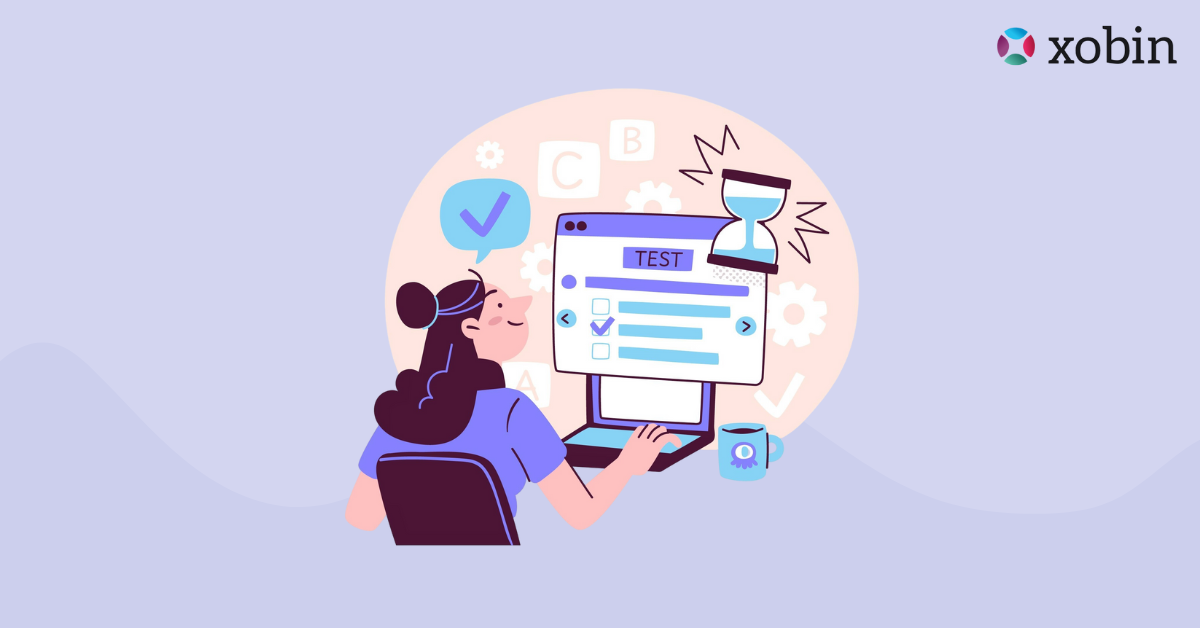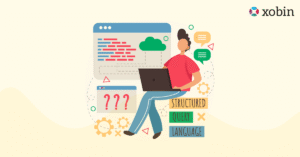In today’s highly competitive business world, attracting and keeping top talent matters more than ever before. For C-suite executives, the pressure to make smarter, faster, and more effective hiring and talent development decisions is immense. One powerful tool that is transforming how companies approach this challenge is adaptive skill assessments.
Table of Contents
This blog unpacks the many benefits of using adaptive assessments in both hiring and talent development, explaining why savvy leaders are adopting this innovative approach to gain a competitive edge.
TL;DR – Key Takeaway!
- Adaptive skill assessments adjust question difficulty in real-time for precise candidate evaluation, ensuring fairness and accuracy.
- These computer adaptive testing speed up hiring by shortening test times without sacrificing quality.
- Candidates enjoy a personalized assessment experience, boosting employer brand and acceptance rates.
- Adaptive assessments deliver powerful predictive insights to identify top performers and plan leadership succession.
- Scalable and flexible, they fit rapidly growing companies and evolving job roles seamlessly.
- In talent development, they enable targeted learning by identifying individual skill gaps for faster growth.
- Continuous skill tracking supports proactive career pathing and boosts employee engagement.
- Personalized development reduces turnover, strengthens culture, and aligns skills with business goals.
- Data-driven decisions replace guesswork, maximizing ROI on hiring and upskilling investments.
What Are Adaptive Skill Assessments?
Adaptive skill assessments are intelligent evaluations that adjust question difficulty in real time based on a candidate’s performance. This dynamic process gives a clearer view of a person’s real skill level. Unlike traditional static tests, where all candidates answer the same questions, adaptive tests change depending on each person’s answers.
Also known as “computer adaptive tests”, these assessments adjust question difficulty to find the optimal challenge level, improving both the candidate experience and the accuracy of results.
Key Benefits of Using Adaptive Skill Assessments in Hiring
1. Enhanced Accuracy and Fairness in Candidate Evaluation
Traditional tests can be either too hard or too easy for many candidates, leading to skewed results and missed opportunities. Adaptive skill assessments overcome this by dynamically adjusting question difficulty. This ensures each candidate is evaluated fairly and accurately on their actual skill level.
Moreover, adaptive testing in recruitment eliminates biases related to test-taking speed or familiarity with a fixed question set. This leads to a more equitable hiring process, critical for top leaders prioritizing diversity and inclusion.
2. Faster and More Efficient Hiring Process
Time is money, especially for senior leaders. Traditional assessments often require all candidates to answer the same lengthy question set, consuming valuable time. By contrast, computer-adaptive test formats shorten assessment length while increasing precision. Candidates only answer questions relevant to their skill level.
This reduces time-to-hire dramatically, helping your recruitment team focus on quality interviews rather than screening through piles of irrelevant resumes.
3. Personalized Candidate Experience
Candidate experience directly impacts your employer brand. Personalized assessments for hiring make candidates feel valued and fairly assessed. Because questions adapt to their skill level, candidates avoid frustration from overly complex or simple questions.
Positive experiences increase the likelihood of candidate acceptance, boosting your reputation in the talent market, a top priority for executives managing brand perception.
4. Predictive Insights for Long-Term Success
One of the most significant advantages of adaptive talent assessments is their ability to predict job performance more reliably. By measuring precise skill levels and cognitive abilities, these assessments help identify candidates with the highest potential for success in specific roles.
Recruiters can use this data to inform workforce planning and succession strategies, ensuring leadership pipelines are strong and well-prepared.
5. Scalability and Flexibility
Growing organizations require scalable hiring solutions. Adaptive assessment platforms can handle large volumes of candidates without compromising accuracy or speed. They also allow for customization to align with evolving job roles and skills, offering flexibility as your company grows.
This scalability benefits the top HR executives overseeing rapid expansion or transformation initiatives.
Benefits of Adaptive Skill Assessments in Talent Development
1. Targeted Learning and Development Programs
Generic training programs usually miss the mark when it comes to meeting individual employee needs. However, adaptive tests tailor learning to each employee’s skill gaps, which makes development programs more effective.
This personalization drives better outcomes, faster skill acquisition, and higher employee satisfaction. For executives, it means a more capable workforce aligned with business goals.
2. Continuous Skill Monitoring and Career Pathing
Adaptive assessments provide ongoing data about employee skills. This allows HR and leadership to track progress and adapt development initiatives accordingly. Employees also receive clear insights into their strengths and areas for improvement, enabling proactive career planning.
Such transparency fosters motivation and loyalty, key metrics that HR leaders track closely.
3. Improved Retention Through Employee Engagement
Engaged employees are more likely to stay. AI-driven skill assessments support personalized growth, boosting motivation with targeted learning paths. This lowers turnover costs while keeping valuable knowledge within the company.
Executives focused on talent retention find adaptive development programs invaluable in strengthening company culture and morale.
4. Aligning Workforce Skills with Strategic Objectives
Business environments evolve rapidly, requiring new skills and competencies. Adaptive skill assessments ensure your workforce development stays aligned with these changing needs by continuously identifying gaps.
HR gains confidence that their teams are prepared for future challenges, enhancing agility and innovation.
5. Data-Driven Decision Making in Talent Management
Adaptive testing data helps executives shift from gut feelings to smart, informed decisions. Whether deciding promotions, succession, or upskilling investments, objective data from adaptive assessments supports more strategic talent management.
This reduces risk and maximizes ROI on your people’s investments.
Why Choose Xobin for Adaptive Skill Assessments?
At Xobin, we specialize in delivering adaptive skill assessments that cater to companies of all sizes. Our platform uses a proprietary algorithm that continuously tailors the assessment flow in real-time, ensuring top-tier accuracy and efficiency.
Whether you’re hiring a developer, sales executive, or financial analyst, Xobin’s adaptive assessments for hiring align the test content to match real-world job roles. Moreover, our analytics suite provides HR leaders with powerful insights for better decision-making.
Want to assess 10,000+ candidates in days, not weeks? With Xobin’s adaptive testing technology, you don’t just make it possible, you make it easy.
With Xobin, you can gain a trusted partner to drive more innovative hiring, boost employee performance, and secure a competitive advantage in talent management.
Ready to transform your talent strategy with adaptive skill assessments? Book a personalized demo with Xobin today and experience the future of hiring and workforce development.
FAQs
1. What are adaptive skill assessments?
These are AI-powered tests that adjust question difficulty in real-time based on a candidate’s answers, delivering accurate skill measurement.
2. How do adaptive tests improve hiring?
They reduce test duration, enhance accuracy, and eliminate bias, leading to better hiring decisions and improved candidate experience.
3. Are adaptive tests suitable for all roles?
Yes. Adaptive assessments can be customized for tech, finance, healthcare, customer service, and more.
4. Can adaptive skill assessments be used for training, too?
Absolutely. They’re ideal for tracking progress and tailoring learning paths in workforce development.
5. How does AI integrate with adaptive testing?
AI enhances adaptive testing by providing real-time analytics, reducing bias, and automating large-scale assessments for higher efficiency.
6. Can adaptive skill assessments be used for employee development?
Yes, they identify individual skill gaps and support personalized training programs that improve engagement and retention.
7. How do adaptive assessments improve hiring outcomes?
They enhance accuracy, reduce bias, shorten assessment time, and deliver predictive insights, leading to better hiring decisions.






